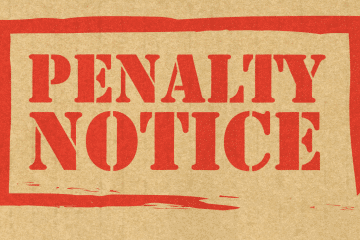Authors – New self-employment FAQs

You are required to register as self-employed by 5 October of the year following the first tax return period. So, if you receive self-employed income on 31 March 2020, you will need to register for Self-Assessment by 5 October 2020 and you will be notified of the need to file a tax return for 2019/20 by 31 January 2021.
Any self-assessment tax will be due on 31 January 2021 (called a balancing payment) together with a payment on account towards 2020/21’s tax bill (half of your 2019/20 bill due 31 January 2021, half due 31 July 2021).
Payments on account are tax payments made twice a year by self-employed people to spread the cost of the year’s tax. They’re calculated based on your previous year’s tax bill. If you think your profits for the next year are going to be lower and therefore your tax bill lower you can apply to reduce your payments on account. You should do a realistic tax estimate for the coming year and use this in your application to reduce the payment on account.
As soon as it becomes apparent that your payments on account are too low you should make a payment of any underpayment as interest will run on any underpayments made. HMRC can also charge penalties if they think you have fraudulently underestimated the tax due (though I have never seen this in practice).
A compelling reason as an author to complete a tax return for your self-employment even if you’re not earning enough to pay tax is to get a recorded profit returned to HMRC which can be used to make future creative averaging claims as you can only make the claim in your third year of operation. Please note that creative averaging is not available to scriptwriters or anyone providing writing services rather than creating a literary work that you dispose of for profit or receive royalties for allowing it to be reproduced.
If your business has never made a profit, I would advise against this. The reason being is that there is a risk that HMRC could regard your writing business as an uncommercial trade or more commonly referred to as a ‘hobby trade’. If HMRC consider this to be the case then loss relief is restricted. HMRC may not query straightaway so there is a risk that each year you receive a repayment of tax and are then required to repay. For a trade to be commercial you have to prove that it is carried on on a commercial basis with a view to realisation of profits. Things that could help your case for losses to be allowed:
· A written business plan which shows the business will make profits and can be run on a commercial basis
· Losses are reviewed and considered before making the tax return
· Book-keeping is accurate enough to detail all income and expenditure and can identify the loss making elements
· Notes or a diary are retained to identify and explain any factors that have negatively impacted the business
My advice would be yes. The reason being is that any expenses that you incur in the years preceding generating income from your first work e.g. research materials, travel to meetings, paper, ink, computers, printers, office furniture etc. can be claimed as incurred on the first day of trading (e.g. against the first royalty cheque or advance) as pre-trading expenditure. You can go back 7 years with this claim. It’s much easier to justify a claim if you record your expenses along the way and make a note of what future writing income they related to.
I’ll look at this as a separate topic but you are only obliged to register for VAT if your turnover is over £85,000 in the preceding 12 months on a rolling basis. You have to register by the end of the following month you breached this limit and will be registered from the 1stof the following month. There is also a requirement to register straight away if you expect your turnover in the next 30 days to be over £85,000 (a large advance for example that you are contracted to receive).

